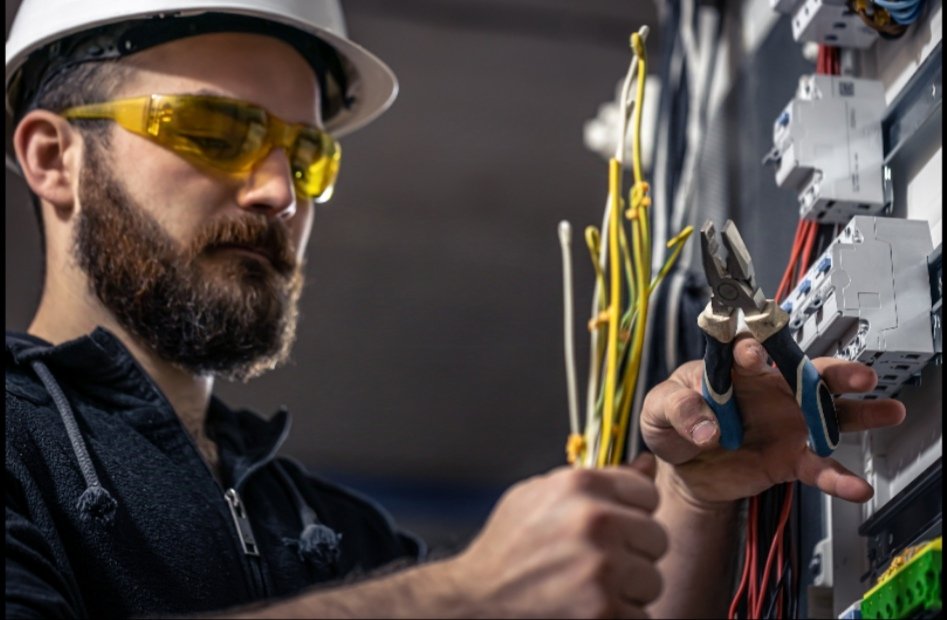Owning a home comes with many responsibilities, and electrical safety is one of the most important. While it may not always be top of mind, keeping your electrical systems compliant with UK regulations is essential for protecting your home and your family. Understanding what electrical compliance involves can help homeowners avoid risks, ensure safe living conditions, and stay within the law.
For those living in the capital, arranging an EICR Certificate London is a key step in demonstrating that your property’s electrical systems meet the required safety standards. This report helps identify potential issues and confirms that installations are in good working order.
Understanding Electrical Compliance
Electrical compliance means making sure that the electrical systems in your home meet current safety standards and legal requirements. In the UK, this includes both the installation and maintenance of wiring, sockets, consumer units (fuse boxes), and other electrical components.
Compliance is not just about ticking boxes—it’s about ensuring that your home is free from hazards such as electrical shocks, fires, or faulty circuits. Even if everything seems to be working fine, hidden issues could pose serious risks over time. That’s why periodic inspections and keeping up with safety updates are so important.
What Is an EICR?
An Electrical Installation Condition Report (EICR) is a formal document produced following an assessment of a property’s electrical systems. The inspection must be carried out by a qualified electrician or an approved contractor. The EICR highlights any faults or potential problems that could affect the safety of the property.
The report outlines whether the installation is satisfactory or if it requires remedial work. It also categorises issues by urgency, making it clear what needs to be addressed immediately and what can be monitored over time.
Although EICRs are legally required for rental properties, they are also strongly recommended for owner-occupied homes. Electrical installations degrade over time, and the EICR ensures that any developing problems are caught early.
Legal Requirements for Homeowners
While landlords are legally required to carry out EICRs at least every five years, homeowners are not currently under the same obligation. However, compliance with general electrical safety standards is still a legal duty under the Building Regulations.
For example, if you are doing major electrical work—such as rewiring your home, installing new circuits, or adding a new consumer unit—you must comply with Part P of the Building Regulations. This requires the work to be carried out by a qualified electrician who can either self-certify or notify your local authority.
If this process isn’t followed, you could face difficulties when selling your home, as you may be asked to provide proof that all electrical work is compliant.
How Often Should You Check Your Electrical System?
While there is no legal rule for how often homeowners must get an EICR, it is generally advised to have one done every 10 years for owner-occupied homes. If your property is older or you notice any warning signs—such as flickering lights, tripped circuits, or burning smells—it is wise to arrange an inspection sooner.
Major renovations or new installations should also trigger a review of your electrical system. Even minor updates may affect the safety of the entire setup, especially in homes with outdated wiring or consumer units.
Recognising Common Electrical Hazards
Understanding the signs of electrical issues can help prevent accidents and damage. Common hazards include overloaded circuits, outdated fuse boxes, exposed wiring, and damaged sockets. These problems may not always be visible, but they can still cause serious harm.
Regular maintenance and timely inspections can detect these problems before they become dangerous. Ignoring signs of electrical trouble may lead to fires, equipment damage, or injury, all of which are preventable with proper compliance.
The Role of Qualified Electricians
Electrical work must always be carried out by a qualified professional. Not only is this a legal requirement for many types of work, but it also ensures that the job is done safely and to the correct standard.
Approved electricians are familiar with current regulations and are trained to identify faults that the average person might miss. They can also issue the necessary certificates, such as an EICR or a Part P Building Regulations compliance certificate.
Hiring a qualified professional gives homeowners peace of mind that their property is safe and compliant with all relevant laws.
Certificates and Documentation
Keeping records of all electrical work is essential. Whether you’ve had a full rewiring or just a minor repair, any certificates or inspection reports should be stored safely. These documents may be needed when selling your home or taking out insurance.
The EICR is one of the most important documents, as it provides a detailed picture of your home’s electrical safety. If remedial work is carried out, make sure it is properly documented, and keep a copy of any follow-up certificates issued.
Government Guidance and Support
The UK Government provides guidance on electrical safety and compliance through various departments and regulators. One useful resource is the Electrical Safety section of the GOV.UK website, which outlines your responsibilities and offers advice on staying safe.
This information is particularly valuable for homeowners who are planning improvements or suspect their wiring may be outdated. By following government-backed advice, you can be confident you are meeting the right standards and keeping your home secure.
Electrical Compliance and Home Insurance
Electrical safety can also affect your home insurance. If you suffer damage due to faulty wiring or an electrical fire, insurers may ask for evidence that your electrical systems were properly maintained. A valid EICR or documentation of recent work can support your claim.
Failing to comply with safety regulations might lead to delays or even a rejection of your insurance claim. That’s why proactive compliance is not just about safety—it also helps protect your investment in the event of an incident.
Planning for the Future
Electrical standards continue to evolve as technology improves and safety knowledge grows. What was considered safe 20 years ago may no longer be acceptable today. Homeowners should be aware of these changes and take steps to update their systems when needed.
Smart home devices, electric vehicle chargers, and energy-efficient systems are becoming more common, and they require proper installation and integration into your home’s electrical network. Regular reviews and professional advice can help you adapt safely to these developments.
Conclusion
Electrical compliance is a key part of homeownership in the UK. While the law may not require all homeowners to obtain an EICR, having one done regularly is a smart and responsible decision. It ensures that your home is safe, up to date with current regulations, and free from hidden risks.
Whether you’re living in a newly built house or a historic property, understanding your responsibilities and maintaining your electrical systems can prevent accidents and protect your family. Taking the time to review your home’s electrical safety now can save you trouble later and give you confidence that your property meets the highest standards. If you want to stay updated with posts like this, please follow us on The Infalct.




